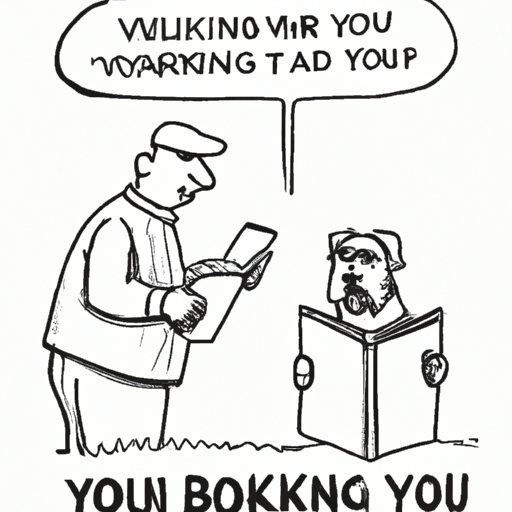Dog owners often find themselves in a predicament where their furry friend’s barking becomes a nuisance. Don’t fret; you’re not alone. With the right strategies and patience, you can train your dog to bark less.
Understanding Why Dogs Bark
First, it’s important to understand why dogs bark. Barking is a type of vocal communication used by dogs and it can mean different things, depending on the situation.
- Territorial/Protective: When a person or an animal comes into an area your dog considers his territory, that often triggers excessive barking.
- Alarm/Fear: Some dogs bark at any noise or object that catches their attention or startles them.
- Boredom/Loneliness: Dogs are pack animals. Dogs left alone for long periods, whether in the house or in the yard, can become bored or sad and often will bark because they are unhappy.
- Greeting/Play: Dogs often bark when greeting people or other animals.
Training Your Dog to Stop Barking
Once you understand why your dog is barking, you can start implementing strategies to help reduce the noise.
1. Remove or mitigate the trigger
Identify what causes your dog to bark and try to remove or mitigate it. For instance, if they bark at people walking by the window, try closing the blinds or moving the dog to another room.
2. Use the ‘quiet’ command
Train your dog to understand the ‘quiet’ command. Start by saying ‘quiet’ when your dog is barking. Once they stop barking, reward them with a treat.
3. Distract your dog
Distract your dog with activities that they enjoy. This can be a toy, a puzzle, or a quick game of fetch.
4. Use a bark collar
As a last resort, you may consider using a bark control device or collar. However, these should be used sparingly and under the guidance of a professional.
Building a Bark-Free Environment
Creating a conducive environment is key to successfully stop your dog from barking excessively. Here are some tips:
- Keep your dog mentally stimulated with toys and activities.
- Regular exercise can help to reduce excess energy that might be causing your dog to bark.
- Consistent schedule for feeding and walks can also help reduce anxiety and limit barking.
Seeking Professional Help
If you’ve tried the strategies mentioned above and your dog’s excessive barking continues, it might be time to seek help from a professional dog trainer or a vet.
Using Products to Aid Training
There are several products available in the market that can aid in training your dog to stop barking. These include bark collars, ultrasonic devices, and calming treats. Remember, these products should be used as a supplement to training, not a replacement.
| Product Type | Purpose |
|---|---|
| Bark Collars | Delivers a mild shock or smell to deter barking |
| Ultrasonic Devices | Emits a high-frequency sound to distract and deter barking |
| Calming Treats | Contains ingredients like chamomile and tryptophan to help calm dogs |
Frequently Asked Questions
- Why is my dog barking at night?
-
Your dog could be barking at night due to disturbances, loneliness, or changes in their environment. Try to find the source of the disturbance and mitigate it.
-
Is it bad to yell at your dog to stop barking?
-
Yelling might seem like a good idea, but it might actually encourage your dog to bark more because they think you’re joining in.
-
Can certain foods make my dog bark more?
- Yes, foods high in sugar and carbs can make your dog hyperactive, which might lead to more barking.
With patience, consistency, and the right strategies, you can train your dog to bark less and ensure a peaceful environment for you and your furry friend.



